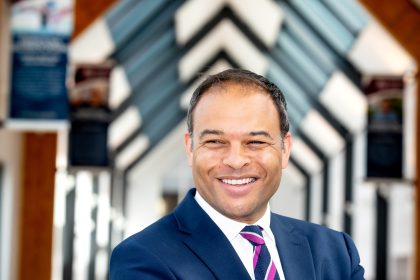A few years ago, I went on an Aspiring Heads course. There were around 100 of us and we had two days of training followed by a smart dinner. I really loved meeting other deputy heads and finding out about other schools and the way they were run. On the final day, we were asked to do a personality test where the room was divided up into four quarters. I can’t remember exactly what each section was for, but by the end of the test, more than 70 per cent of the room was standing in one particular quarter – and I wasn’t with them!
I ended up in a quarter where there was only six or seven of us and it threw me. I looked around the room at the other aspiring heads and I started questioning myself. Did this result mean I wasn’t cut out to be a head after all? I thought.
Then I spotted someone in my quarter who I recognised. Earlier in the course, an experienced head, of about 15 years, had given what I felt to be a fascinating presentation on his specific aim to make sure that no child in his school was forgotten. He wanted to ensure every child’s talent and ability was recognised and he never wanted to hear the words: I’m fine. He’d come up with a very successful system to ensure he never heard those words.
So, there I was, standing in the minority, questioning whether I had the right personality to be a headteacher and I spied him, the one who had spoken so eloquently and passionately about the special qualities he fostered in his children. He was in my quarter. I thought to myself, I might be in the smallest group, but the one who I admire the most at this whole event as a leader is standing in my corner. He was an outstanding head, and he was a different type of leader who was making a real difference to the lives of his students. If he could do it, then maybe I could too.
Today, as headmaster of the Junior School, it’s important that our children become fearless in their approach to learning, and that they have the freedom and courage to stand strong if they don’t follow the main crowd. We want to see them comfortable to speak out and contribute without fear of repercussions, whether that’s constructing a sentence in a different way or solving a maths problem using a new strategy.
Everyone is different and has their own unique qualities. I love nothing more than walking around school and finding out about the children’s passions and hobbies outside of the Clock House gates and what makes them tick. One of our pupils is a go karting champion, another loves Japanese manga comics. To me, this tells the child that I’m interested in their life and that’s really important.
Being different is welcomed and celebrated at the Junior School. No one should have to fit into a mould or be the same as everyone else to thrive – not a member of staff, not our wonderful pupils, and certainly not a headteacher.
“Everyone is different and has their own unique qualities. I love nothing more than walking around school and finding out about the children’s passions and hobbies outside of the Clock House gates and what makes them tick.”
